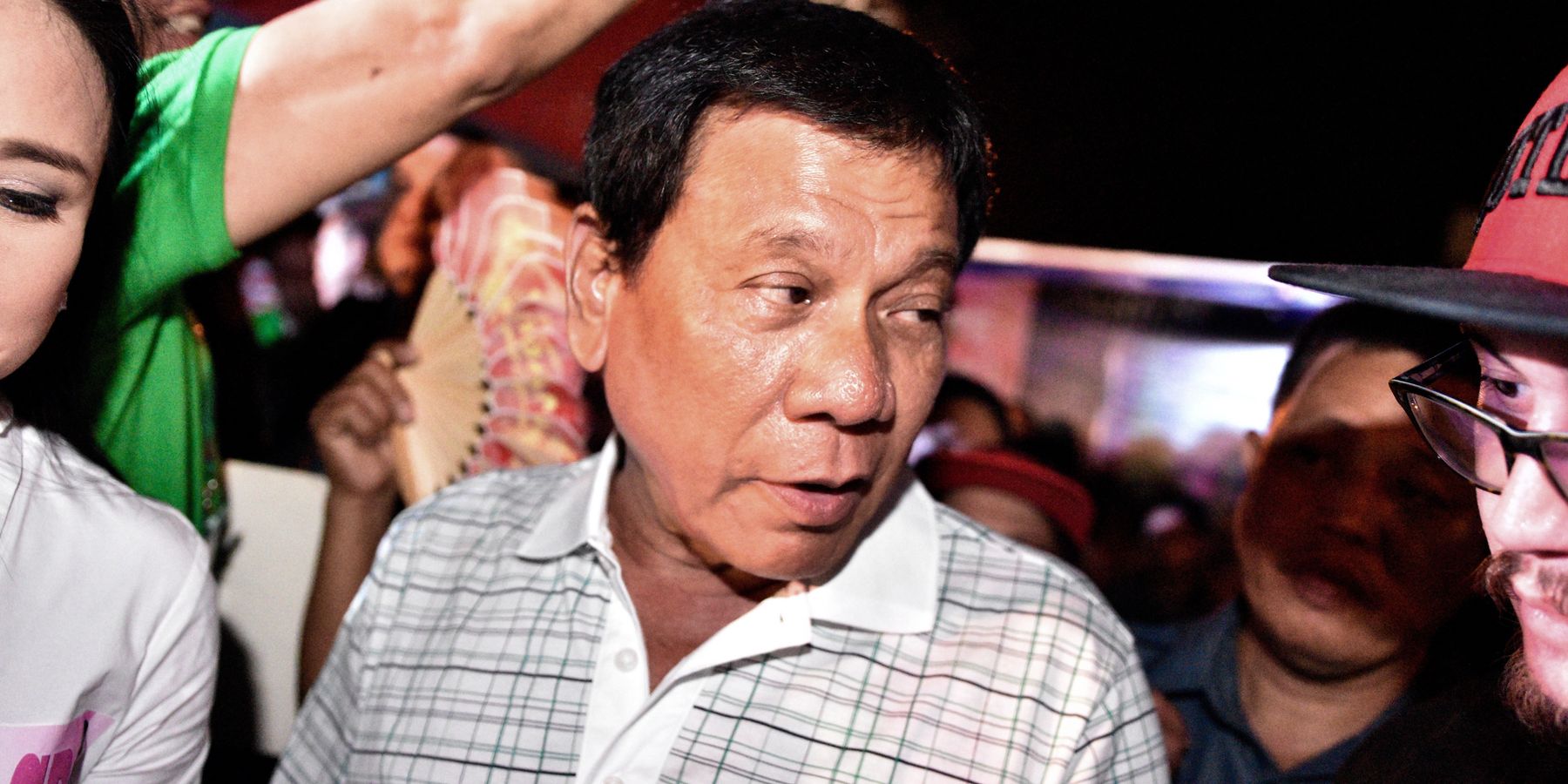Last Tuesday, former president of the Philippines Rodrigo Duterte was arrested in Manila and taken to the Hague, where he will be tried for crimes against humanity at the International Criminal Court.
From 2016-2022, Duterte’s government carried out a campaign of mass killings of suspected drug users. It’s estimated that 27,000 people, most of them poor and indigent, were executed without trial by police officers and vigilantes at his behest. Children were also routinely killed during Duterte’s drug raids- both as collateral victims and as targets.
While this happened, the United States provided tens of millions of dollars annually to both the Philippine military and the Philippine National Police. The funding flowed mostly uninterrupted while human rights groups around the world called foul.
Duterte made his intention to wage a brutal anti-drug crackdown clear from the very beginning. Before his ascent to the presidency, he served as mayor of Davao, the nation’s 3rd largest city. There he presided over the executions of 1,400 suspected criminals and street children at the hands of a vigilante group known as the “Davao Death Squad.” Duterte initially denied direct involvement in these killings, and then later implied he did in fact support them, saying, “How did I reach that title among the world’s safest cities? Kill them all.”
In 2016, Duterte ran for president as a hardliner on crime, promising to eradicate all criminal activity in the Philippines within six months. In a speech just after taking office, he warned drug users, “I will kill you, I will kill you. I will take the law into my own hands… forget about the laws of men, forget about the laws of international law.” He later compared his violent campaign against drug users to Hitler’s genocide of Jews.
Within months of Duterte’s term the Philippine National Police launched Operation Double Barrel, a nationwide campaign to arrest drug users. A 2017 Human Rights Watch (HRW) investigation found that in practice, the operation was, “a campaign of extrajudicial execution in impoverished areas of Manila and other urban areas.”
Many of the killings examined by HRW followed a pattern: a group of plainclothes gunmen would enter the home of a suspected drug user, kill them without ever issuing an arrest, and plant drugs or weapons next to the body. Sometimes the gunmen would self-identify as police officers, and other times they would not. Police would also detain suspected drug users without charges and torture them for bribes.
“Duterte’s outspoken endorsement of the campaign implicates him and other senior officials in possible incitement to violence, instigation of murder, and in command responsibility for crimes against humanity,” stated the HRW report.
Less than a month after Duterte took office, then- Secretary of State John Kerry announced a $32 million weapons and training package specifically to support the Philippine National Police. He made no mention of Duterte’s numerous threats to weaponize law enforcement on the campaign trail, or the fact that 239 suspected drug users had already been killed by police without due process at that point.
Obama’s administration authorized $90 million in military aid to the Philippines in 2016 and roughly $1 billion during the 8 years he was in office. As a growing chorus of human rights advocates criticized the United States for supporting Duterte’s atrocities, the Obama administration suspended some security assistance for the Philippine National Police in November of 2016, but kept military funding at normal levels.
These suspensions were swiftly reversed when Donald Trump took office in 2017. “I just want to congratulate you because I am hearing of the unbelievable job [you’re doing] on the drug problem,” he told Duterte in a phone call shortly after being inaugurated.
In 2018, the Trump administration provided $55 million to the Philippine National Police in aid and arm sales and $193.5 million in military aid to the Philippines overall. This aid package enabled Duterte’s regime on two fronts.
“The war on drugs was primarily implemented by the Philippine National Police, but the attacks on human rights defenders and activists were mainly done by the military,” said Philippine-based human rights activist Judy Pasimio in an interview with Responsible Statecraft.
Pasimio took to the streets in 2016 for a demonstration organized by a coalition of civil society groups to protest the first 100 killings carried out in the drug war. “We understood that this can cross over. This isn’t just about killings in the war on drugs, it will extend to killings of activists in the pretext of the war on drugs,” she said.
Over the course of his presidency, Duterte repeatedly threatened to kill, investigate, and imprison human rights defenders for obstructing his anti-drug campaign. His Justice Department used anti-terrorism laws to place oppositional voices on government watchlists and his state security forces routinely executed activists without trial.
Under President BongBong Marcos, Duterte’s successor, the Philippine government continues to persecute human rights organizations and carry out drug related killings- all while enjoying massive amounts of military aid from Washington.
Just last month, the Trump administration clarified that a $336 million aid bundle for “modernizing Philippine security forces” would be among the few packages to be exempt from his foreign aid freeze.
“The United States sees the Philippines as part of its overall policy of countering China,” said Sarang Shidore, director of the Global South Program at the Quincy Institute.
Duterte’s upcoming trial will hopefully shed new light on the country’s egregious human rights violations, but that will not change the flow of the military aid to the U.S.-Philippines security relationship, not as long as the Philippines remains a regional security ally.
















